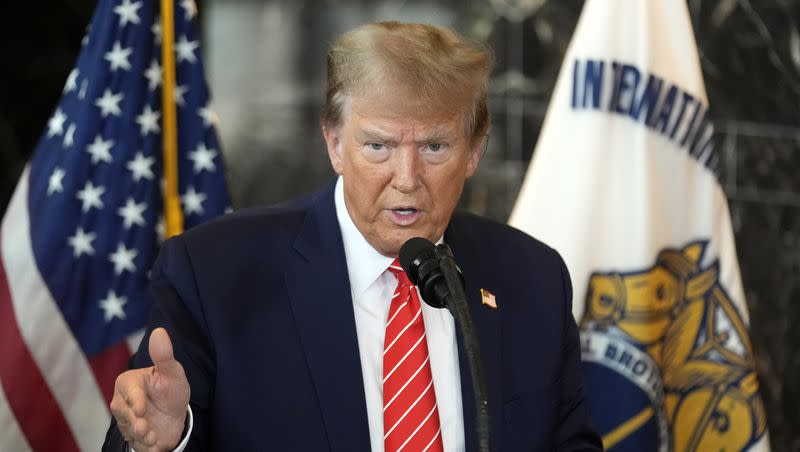Judge in Trump’s 2020 election interference case delays trial

- Oops!Something went wrong.Please try again later.
- Oops!Something went wrong.Please try again later.
Federal Judge Tanya Chutkan filed for a delay in former President Donald Trump’s 2020 election interference case in Washington, D.C., on Friday. The trial was set to begin on March 4 but was postponed for reasons regarding Trump’s push for immunity from prosecution.
In October, Trump’s lawyers submitted a motion to dismiss the case, which Chutkan rejected. A month later, Trump’s legal team pushed for a temporary suspension of the case, which was approved on Dec. 13.
Chutkan has not yet scheduled a new date for the case in Washington, stating she will determine a date after Trump’s immunity claims are addressed.
“The immunity claims are now in front of a three-judge panel of the United States Court of Appeals for the District of Columbia Circuit, which has been mulling the issue since oral arguments were heard on Jan. 9,” per The New York Times. “The panel, which expressed skepticism about Mr. Trump’s position, has yet to return a decision after setting an extremely aggressive schedule for briefings to be filed.”
Related
A previous order filed by Chutkan in January stated that Trump and his team would get a full seven months between the indictment and trial and that it would be “sufficient time to advise with counsel and prepare his defense,” not taking into account the time in which the trial is on hold.
Trump’s attorneys have argued that “Trump could not face criminal prosecution because he was not first convicted in the Senate’s impeachment trial over his actions around the 2020 election,” according to Axios. And because Trump’s “actions around that time were performed within the ‘outer perimeter’ of the president’s official duties. They cited the 1982 Supreme Court case, Nixon v. Fitzgerald.”

